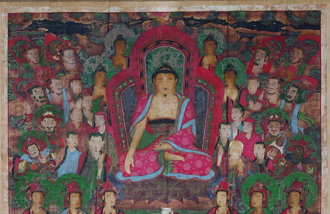Leaders Mull Future Talks With North
The ASEAN Regional Forum (ARF) which will be held in Kuala Lumpur, Malaysia from July 26 to 28 is drawing attention on whether it could serve as a stepping stone of the resumption of the six-party talks for resolution of North Koreas nuclear issues.
Foreign affairs secretaries of countries concerned with the six-party talks, including North Korean counterpart Baek Nam Soon, are going to attend the ARF. As for Foreign Minister Ban Ki-moon, it is a challenge for him to meet Secretary of State Condoleezza Rice and address Korea-U.S. differences surrounding the issues to sanction the North.
Baek Hyun Chul, a councilor of the North Korean embassy in Malaysia announced in an interview with AP News on July 24 that he plans to attend the ARF from July 27 to 28.
However, the South Korean government understands that the six-party talks where foreign ministers gather are not likely to take place. That is because the U.S. will not respond to the Norths condition that they will attend the talks if the U.S. cancels financial sanctions against the North, according to U.S. principles.
The five-party talks without the North are also less likely to occur. China, a chair country, made it clear that it is against the five-way talks as it could become a hindrance to the six-way talks due to the Norths opposition.
It is said that accordingly, South Korea and China are proceeding with multi-party talks in case either the six-party talks or the five-party talks are not available.
Song Min-soon, the presidents top security aide, said on a KBS1 radio show on July 24, As the five-party talks could have negative effect, President Roh and Chinese president Hu Jintao had a conference on the phone last Friday and decided to approach the issue in various ways.
One way is to address North Koreas nuclear and missile launch issues by holding eight to ten-way talks, adding AFR members to the participating countries of the six-party talks.
Such an approach could attract the North to the talks based on a case that eight to ten-way talks are not the six-party talks ostensibly, and the six countries could discuss North Korean issues in them.
If the ten-way talks take place, Malaysia, a chair country of the ARF, Australia, Canada, close to the U.S., and Indonesia, close to North Korea, are highly likely to attend.
However, it is not very likely for foreign ministers to produce meaningful results even if the six-party talks or eight to ten-way talks are held.
A foreign ministry official forecast that the talks are highly likely to end only with a timetable and a resolution to make efforts to resume the six-party talks.
It is said that the U.S. will request South Korea to actively participate in the Proliferation Security Initiative (PSI) aimed at stopping the spread of weapons of mass destruction.
The South Korean government has already showed disapproval to the U.S. officially and unofficially in fear of the Norths resistance, but the U.S. keeps asking for our participation in the PSI and physical assistance in training within and out of the area.
Meanwhile, the South Korean government thinks that suspension of providing rice and fertilizer to the North would have bigger effect on the North than the economic sanctions the U.S. and Japan are proceeding with, and therefore, has complaints about the U.S. not evaluating that properly.
It seems that such issues will be dealt with at a meeting between Korea and U.S. foreign ministers, but it is likely that Rice, who is visiting the Middle East, may not participate in the ARF if the situation in Lebanon becomes acute.
Myoung-Gun Lee gun43@donga.com weappon@donga.com







